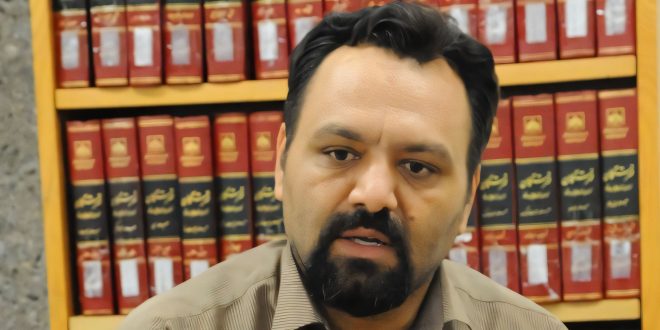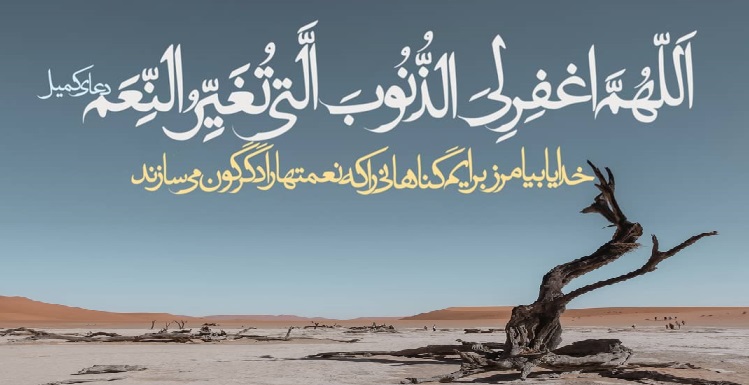This document discusses the concept of a legitimate governance system in the Islamic Republic of Iran based on the principle of Velayat-e Faqih (Guardianship of the Islamic Jurist). It highlights the legal and existential disparities regarding the recognition of Imam Mahdi (a.s) within the current regime and elaborates on the historical and legal implications of assigning the position of Velayat-e Faqih to him. The text further advocates for asserting the rights of Imam Mahdi to facilitate his governance in Iran, addressing various contradictions within the current interpretations of religious authority and the potential futures regarding governance under his leadership.
The document asserts there are individuals who resist the formal recognition of Imam Mahdi (a.s) in the governance structure due to personal interests.
It emphasizes that the lack of citizenship for Imam Mahdi (a.s) complicates legal acknowledgement of his rightful rule.
The author proposes transferring the position of Velayat-e Faqih to Imam Mahdi (a.s) as a means of preserving the Islamic Republic’s integrity and principles.
It questions why the highest legal authority in the Islamic Republic is not the Imam Mahdi (a.s) when he fulfills all conditions for leadership.
Various contradictions regarding the authority of non-ma’sum (non-infallible) clerics are highlighted, suggesting inconsistencies in their claims to authority over the infallible Imam.
Legal pathways for recognizing and granting citizenship to Imam Mahdi (a.s) based on Iranian laws are considered crucial for his rightful governance.
The text posits that the eventual governance choice for Imam Mahdi (a.s) may involve either the lawful seizure of power or confronting existing political systems head-on.
Related Questions
What legal frameworks exist to recognize Imam Mahdi (a.s) as a legitimate leader in the Islamic Republic of Iran?
How do various interpretations of Velayat-e Faqih affect political authority in Iran?
What implications would the recognition of Imam Mahdi (a.s) have for the future governance of Islamic societies globally?
What legal frameworks exist to recognize Imam Mahdi (a.s) as a legitimate leader in the Islamic Republic of Iran?
The context discusses several legal frameworks and arguments for recognizing Imam Mahdi (a.s) as a legitimate leader in the Islamic Republic of Iran, particularly through the lens of Velayat-e Faqih (Guardianship of the Islamic Jurist). Here are the key points:
Citizenship and Legal Identity: The text argues that Imam Mahdi (a.s) should be granted Iranian citizenship based on existing laws that allow for the recognition of individuals born to Iranian mothers. Since Imam Sajad (a.s) is considered to have an Iranian mother, this legal framework could be extended to Imam Mahdi (a.s), thereby establishing his legal identity within the Iranian system.
Legislative Support: The document references laws passed by the Iranian parliament, such as the 2019 legislation mandating the issuance of citizenship to children of Iranian mothers, which could be applied to Imam Mahdi (a.s). This legal recognition could facilitate his governance and rights within the current political structure.
Role of the Assembly of Experts: The Assembly of Experts is tasked with overseeing the leadership in Iran. The text suggests that this body should formally recognize Imam Mahdi (a.s) as a qualified leader and Velayat-e Faqih, thus transferring the leadership role to him in accordance with Islamic principles and the Iranian Constitution.
Legal and Ethical Arguments: The author argues that it is both legally and ethically necessary to recognize Imam Mahdi (a.s) as the rightful leader, especially given the contradictions in the current governance structure where non-infallible clerics claim authority over an infallible Imam. This recognition is framed as a way to align the governance of Iran with Islamic teachings and principles.
Potential Pathways for Governance: The document outlines two potential pathways for Imam Mahdi (a.s) to establish his governance: either through the legal frameworks of existing political systems or by overthrowing current regimes. The emphasis is on utilizing legal avenues within Iran to assert his leadership.
Constitutional Provisions: The text highlights that there are no legal prohibitions against recognizing Imam Mahdi (a.s) as the Velayat-e Faqih, suggesting that the current governance structure could be adapted to include him as the legitimate leader.
In summary, the legal frameworks for recognizing Imam Mahdi (a.s) as a legitimate leader in Iran include citizenship laws, the role of the Assembly of Experts, ethical and legal arguments for his leadership, and constitutional provisions that allow for such recognition.
How do various interpretations of Velayat-e Faqih affect political authority in Iran?
The interpretations of Velayat-e Faqih (Guardianship of the Islamic Jurist) significantly influence political authority in Iran, particularly in the context of the legitimacy and role of Imam Mahdi (a.s) within the governance structure. Here are the key points synthesized from the provided context:
Conflict of Interests: Some individuals within the Iranian political system view the formal recognition of Imam Mahdi (a.s) as a legitimate leader as a threat to their personal interests. This resistance complicates the integration of his authority into the current governance framework.
Legal Identity and Citizenship: The lack of formal citizenship for Imam Mahdi (a.s) is seen as a barrier to his legal recognition and authority. The context argues that recognizing his Iranian citizenship, based on existing laws regarding the offspring of Iranian mothers, could provide a legal basis for his governance.
Authority of Non-Infallible Clerics: The current political structure allows non-infallible clerics to claim authority over the governance of the Islamic Republic. This raises questions about the legitimacy of their claims, especially when an infallible figure like Imam Mahdi (a.s) exists. The text highlights contradictions in allowing non-ma’sum (non-infallible) clerics to hold power while denying the same to Imam Mahdi (a.s).
Legal Frameworks for Governance: The document discusses the potential for transferring the position of Velayat-e Faqih to Imam Mahdi (a.s) and argues that there are no legal prohibitions against this transfer. It suggests that the Assembly of Experts should formally recognize him as a qualified leader, which would align the governance structure with Islamic principles.
Ethical and Moral Considerations: The text posits that it is both ethically and legally necessary to recognize Imam Mahdi (a.s) as the rightful leader. The current governance, which claims to be Islamic, should not overlook the authority of the Imam, especially given the foundational principles of the Islamic Republic.
Potential Pathways for Governance: The document outlines two potential pathways for Imam Mahdi (a.s) to establish his governance: through the legal frameworks of existing political systems or by confronting and overthrowing current regimes. This duality reflects the ongoing tension between traditional interpretations of Velayat-e Faqih and the need for a more inclusive governance model that recognizes the Imam’s authority.
Call for Reform: The author advocates for a re-evaluation of the current interpretations of Velayat-e Faqih to facilitate the recognition of Imam Mahdi (a.s) as a legitimate leader. This includes addressing the contradictions within the existing system and ensuring that the governance aligns with Islamic teachings regarding the rightful leadership.
In summary, various interpretations of Velayat-e Faqih affect political authority in Iran by creating tensions between the claims of non-infallible clerics and the rightful authority of Imam Mahdi (a.s), raising legal and ethical questions about governance, and highlighting the need for reform to align the political structure with Islamic principles.
What implications would the recognition of Imam Mahdi (a.s) have for the future governance of Islamic societies globally?
The recognition of Imam Mahdi (a.s) as a legitimate leader within the governance structure of Islamic societies, particularly in Iran, could have profound implications for future governance. Here are the key points synthesized from the provided context:
Legitimization of Authority: Recognizing Imam Mahdi (a.s) as the rightful leader would shift the basis of political authority from non-infallible clerics to an infallible figure. This could enhance the legitimacy of governance in Islamic societies by aligning it more closely with Islamic teachings and principles.
Legal Frameworks: The potential legal recognition of Imam Mahdi (a.s) as a citizen of Iran, based on existing laws regarding citizenship for children of Iranian mothers, could pave the way for his formal leadership role. This legal framework could serve as a model for other Islamic societies to establish similar recognition.
Reform of Governance Structures: The transition of Velayat-e Faqih (Guardianship of the Islamic Jurist) to Imam Mahdi (a.s) could lead to significant reforms in governance structures, emphasizing the need for a system that reflects Islamic values and the rightful authority of the Imam. This could inspire similar movements in other Islamic countries seeking to align their governance with religious principles.
Counteracting Secularism: The recognition of Imam Mahdi (a.s) could serve as a counterbalance to secularism in Islamic societies. By asserting the authority of an infallible leader, it may strengthen the Islamic identity of governance and resist secular influences that contradict Islamic
teachings.
Unity Among Islamic Societies: A unified recognition of Imam Mahdi (a.s) across different Islamic societies could foster greater solidarity among Muslims. This could lead to collaborative efforts in governance, policy-making, and addressing common challenges faced by Islamic communities globally.
Pathways for Governance: The document outlines two potential pathways for Imam Mahdi (a.s) to establish his governance: through the legal frameworks of existing political systems or by confronting and overthrowing current regimes. This dual approach could influence how Islamic societies navigate their political landscapes in the future.
Moral and Ethical Governance: The recognition of Imam Mahdi (a.s) could promote a governance model that emphasizes moral and ethical considerations, aligning political actions with Islamic values. This could lead to a more just and equitable society.
Preparation for Global Governance: The eventual recognition of Imam Mahdi (a.s) could be seen as a preparatory step for the establishment of a global Islamic governance system. This aligns with the belief in the eventual emergence of a global Islamic state led by the Imam, which could reshape the political landscape in Islamic societies.
In summary, the recognition of Imam Mahdi (a.s) as a legitimate leader could significantly impact the governance of Islamic societies by legitimizing authority, reforming governance structures, countering secularism, fostering unity, and preparing for a global Islamic governance model. This recognition could ultimately lead to a more cohesive and ethically grounded political framework in the Islamic world.
 آکادمی رابعی اخبار ، مقالات ،آثار و برنامه های مهندس حمید رابعی
آکادمی رابعی اخبار ، مقالات ،آثار و برنامه های مهندس حمید رابعی











